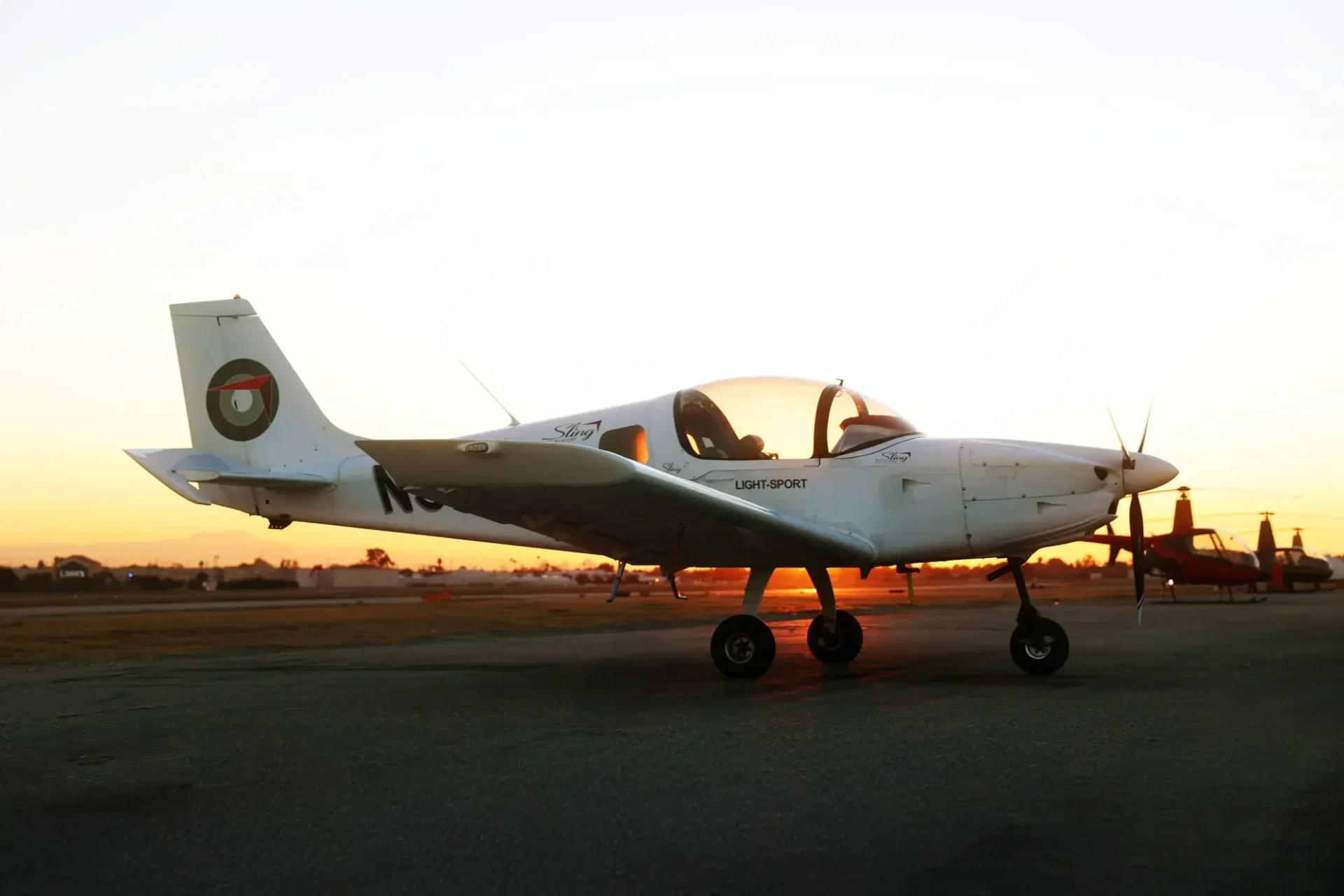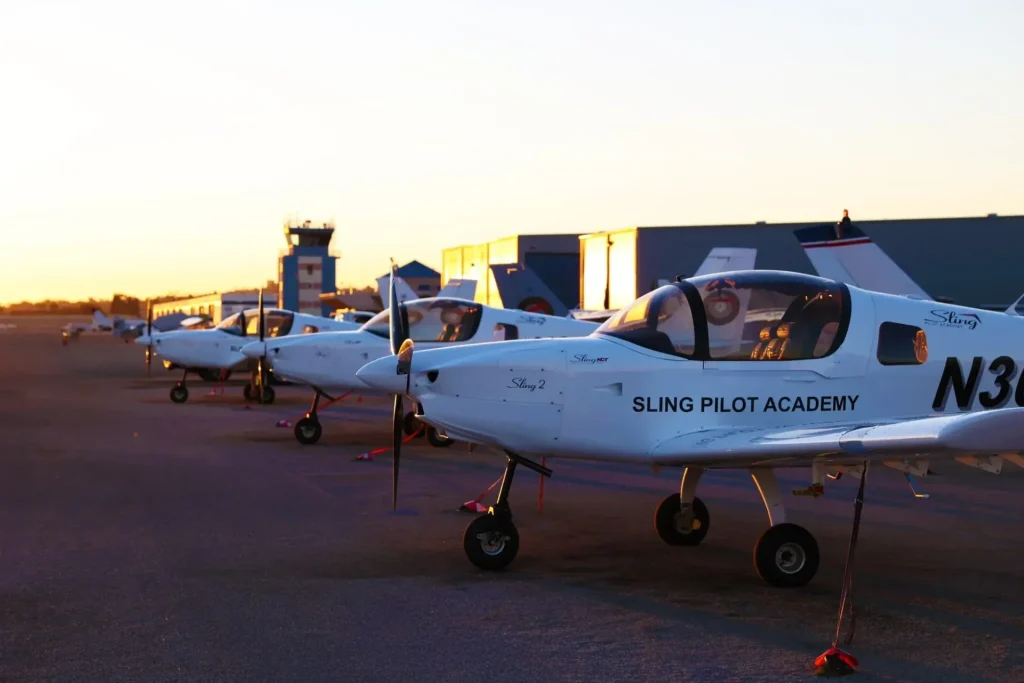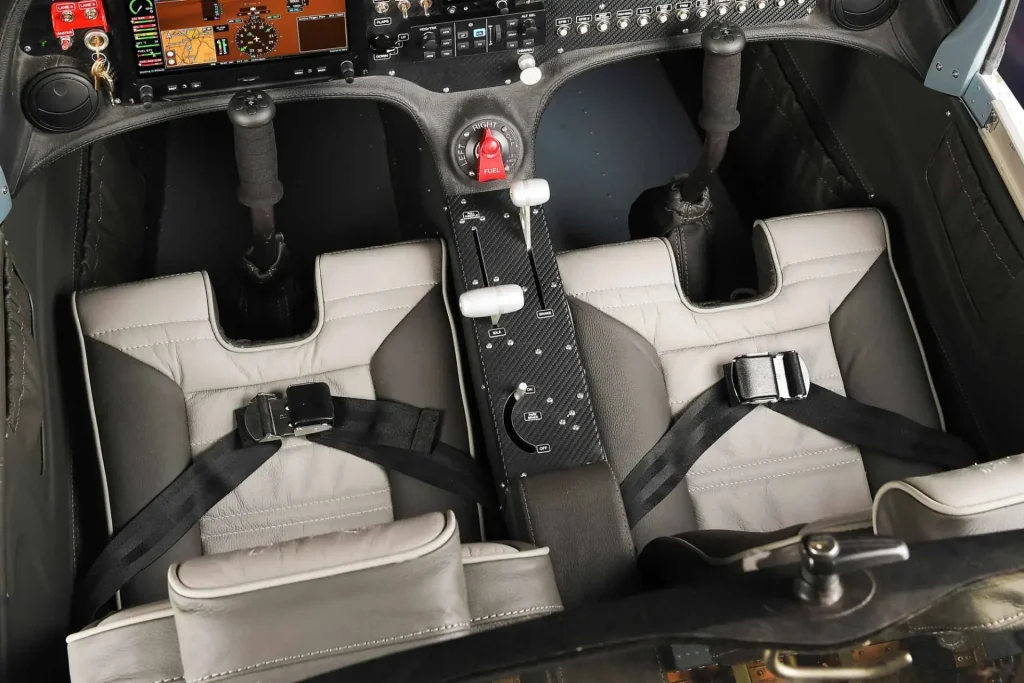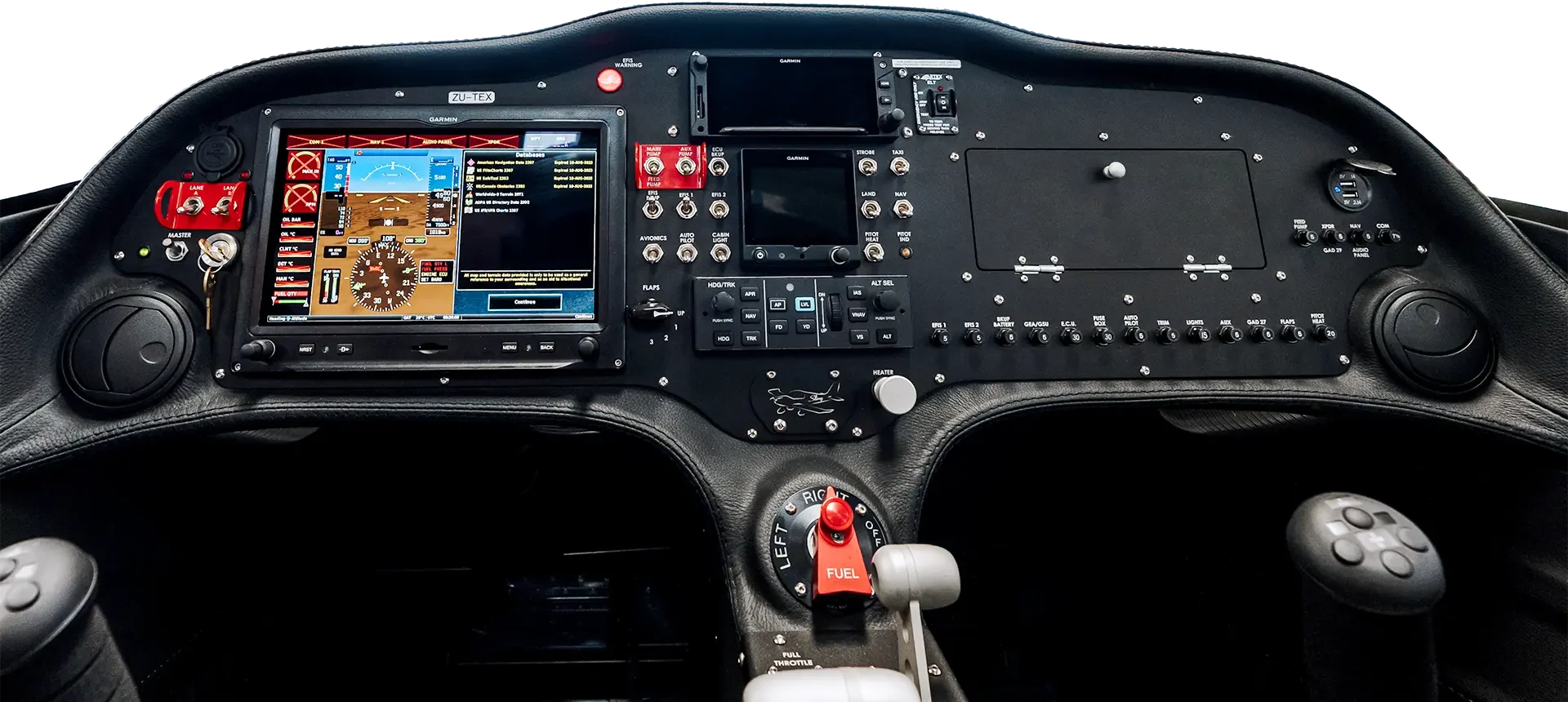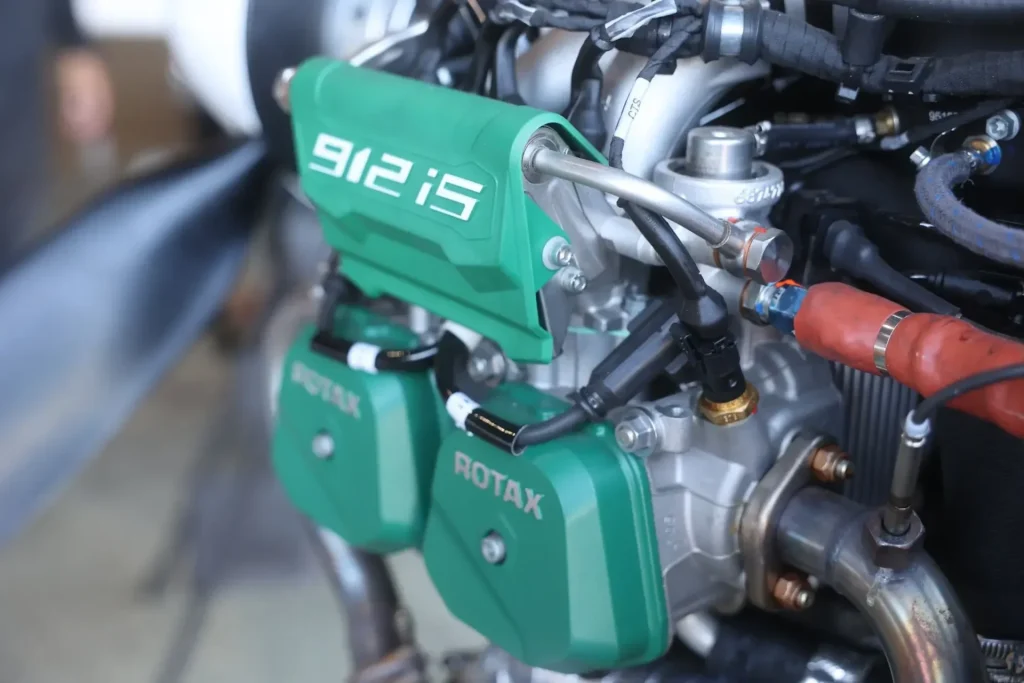Quick Specs
180 KG
Useful Load
850 NM
Max Range
700 FPM
Climb Rate
120 KTAS
Cruise Speed
15 LT/HR
Fuel Burn
2 SEATS
Max Persons
180 KG
Useful Load
850 NM
Max Range
700 FPM
Climb Rate
120 KTAS
Cruise Speed
15 LT/HR
Fuel Burn
2 SEATS
Max Persons
Overview
SLING LSA
So, what you may ask, is the ideal training aircraft? One that can satisfy the demands of a modern-day high-flight-time fixed-wing flight school operation? Well, that depends on what you are looking for. In days gone by, the Cessna 172 and Piper Cherokee were the go-to training aircraft. However, the goalposts have moved considerably, to the point where the typical legacy aircraft can no longer fulfil the role that flight training in this modern era demands.
Enter the Sling LSA. Based on the tried and tested Sling 2 – an aircraft which has been plying its trade in flight schools both locally and internationally for the past 14 years. Collectively, these aircraft have logged hundreds of thousands of hours in this environment, with some now exceeding 9,000 hours of abuse. The Sling LSA is an evolution of the brand, specifically designed to satisfy the demands of modern-day flight school operations.
Built entirely with a robust all-metal construction, the aircraft is well suited to the rigours of the flight school environment. The low wing layout provides for predictable handling while still being a ‘stick and rudder’ aircraft. Characteristically stable and well-harmonised, but still requires positive aircraft control to be flown well. The Sling LSA demands more finesse and ‘stick and rudder’ skill, compared to the Cessna 172, which is a great flight training aircraft trait.
Interior
A truly first-class travel experience.
The Sling LSA’s sublime and beautifully appointed interior provides executive two-seat comfort. In order to handle the harsh treatment of the flight training environment, the Sling LSA interior is fitted with hardwearing materials and comes standard with authentic leather seat covers. With its lavish carpeting, the Sling LSA certainly shows an elegance that adds a touch of class to aircraft interiors.
In addition, the canopy interior has a foldable heatshield for occupant protection and comfort on hotter days. Available in four colour palettes: Cast Iron, Red Velvet, Indigo Sky and Cloud Burst with stitching, piping, and panelling in complementary colours.
Avionics
Excellent instrumentation options make for a unique and state-of-the-art flying experience at a fraction of the cost of our certified competitors.
The Sling LSA has a premium all Garmin avionics suite. This includes the G3X full primary flight display with optional second MFD, G5 backup flight display, GTX45R ADS-B in and out transponder, paired with a GTN 650 Xi GPS / NAV / COMM / MFD navigator and Autopilot with GMC507 control panel completing the line-up. This set-up is so advanced, that the FAA has deemed the Sling LSA as a Technically Advanced Airplane (TAA). The FAA recently changed the Commercial Pilot requirement for 10 hours of ‘complex’ time to include training in a TAA. They understand that managing systems, whether it be a landing gear control or a complex avionics system with an autopilot, teaches a pilot to cope with complexity that can be transferred to other complex airplane systems. Therefore, a student can now receive all training from ab-initio through PPL and take on the Commercial Pilot check ride in the Sling LSA, as it is a TAA.
Powerplant
Your Sling LSA is powered by a Rotax 912 engine and is available as a 912 ULS or 912 iS.
While the 100 hp Rotax 912 ULS offers a time between overhauls of 2,000 hrs and is the best power-to-weight ratio in its class, the Rotax 912 iS offers all the well-known advantages of the Rotax 4-stroke engine series as well as electronic fuel injection and an engine management system contributing significantly lower fuel consumption, features which will ultimately enhance the flying and ownership experience of pilots.
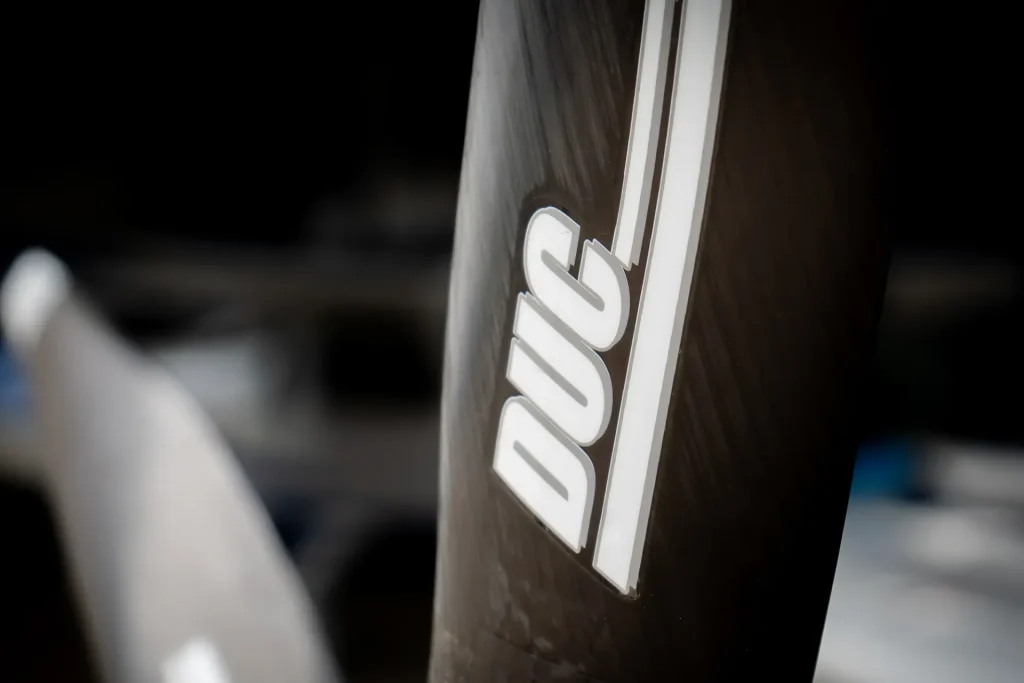
DUC Propeller
Our Sling LSA comes equipped with the 3-blade DUC FLASH propellers, delivering excellent climb performance and smooth, efficient operation.
The lightweight composite construction reduces vibration and enhances comfort in flight, while the ground-adjustable pitch allows easy optimization for different mission profiles—ultimately improving overall reliability, speed, and versatility.
Instrumentation Options
We have standardised on Garmin instruments throughout. They are modern, reliable and you can get the backup you need no matter where you are in the world.
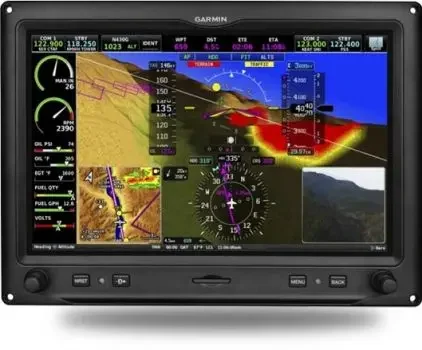
Garmin EFIS
Designed from the ground up with a native touchscreen interface, the Garmin 10” G3X Touch flight display is the smartest, most advanced large-format flight displays Garmin has ever designed specifically for LSA and amateur-built aircraft. The integration and versatility provided by the G3X Touch make it the ideal panel layout for your Sling.
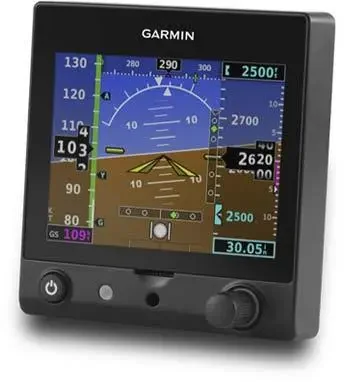
Backup Instruments
Designed by Garmin’s “Team X” engineering group specifically for the light sport aircraft markets, the G5 electronic flight instrument delivers exceptional performance, reliability and ease of installation as an all-in-one backup glass cockpit display. By combining visual cues and data readouts once scattered across a myriad of instruments, G5 makes flight information easier to scan so pilots can respond more quickly and intuitively to any inflight situation.
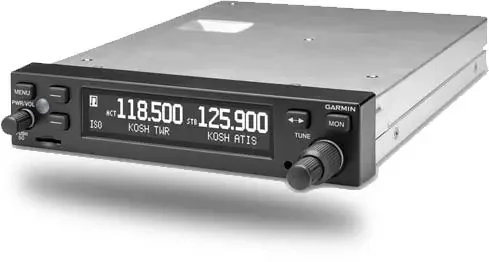
Garmin Radios
Designed specifically for light sport aircraft, the GTR 200 combines powerful Comm capabilities with advanced workload-reducing features formerly only found in high-end certified systems. Its slim 1.35” tall design allows you to make the most of limited space in your panel while 10 W of transmit power helps ensure solid communications between you and ATC or other aircraft in your vicinity. Information displays on the large, sunlight-readable display with brightness levels that can adjust automatically to the natural light level in the cockpit, or can be adjusted manually by the pilot.
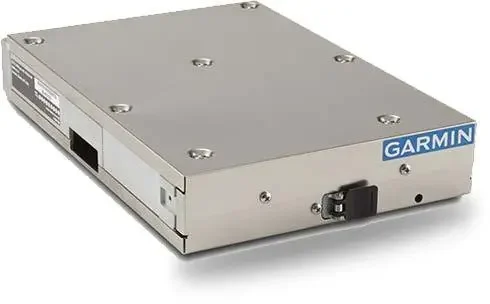
Garmin Transponders
Designed from the ground up with a native touchscreen interface, the Garmin 10” G3X Touch flight display is the smartest, most advanced large-format flight displays Garmin has ever designed specifically for LSA and amateur-built aircraft. The integration and versatility provided by the G3X Touch make it the ideal panel layout for your Sling.
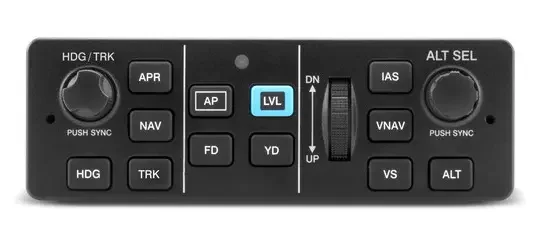
Garmin Auto Pilots
The Garmin GMC 507 control panel offers a dedicated interface for the GFC 500 autopilot in certified aircraft as well as G3X autopilots in experimental and light sport aircraft. GMC 507 allows pilots to control the advanced features offered by Garmin digital autopilot systems, including advanced autopilot modes such as indicated airspeed hold, independent flight director and third-axis yaw damper (when installed with appropriate servos). Plus, the control wheel integrated into the GMC 507 makes for easier pitch, vertical speed and airspeed adjustments, while separate knobs allow twist-control of heading/track and altitude.
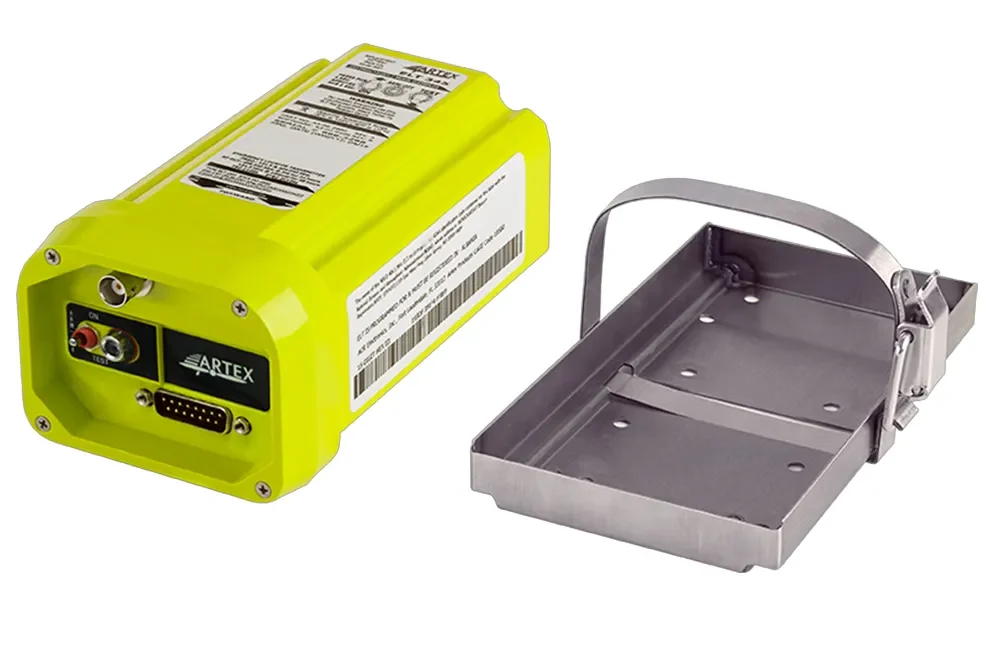
ELT's
Take to the skies with confidence with the ELT 345. The best selling ARTEX ELT 345 is built to the industry’s most stringent quality management standards to ensure the ELT works the first time, every time. The ARTEX ELT 345 transmits on 406 MHz and 121.5 MHz frequencies while providing position accuracy thanks to the built-in GPS navigational interface.
Standard & Optional Equipment
The Sling LSA includes a host of handy standard features. Interior is all leather upholstered and there are cabin heaters on both sides. Seats are adjustable, as are the pedals. Controls are full-dual – stick, pedals, throttle and brakes. Comfort on the inside is complemented by robust, safety-first design on the outside.
The Sling LSA is made using CNC punched aircraft grade aluminium, main spars are anodised and all aluminium parts alodined against corrosion. Front gear, engine mount and pedals are 4130 steel, while ailerons and elevators have pushrod controls with bearings; indeed all control surface hinges use ball bearings.
| PERFORMANCE & ENGINE | ROTAX 912 iS |
|---|---|
| Engine make and type | ROTAX 912 iS |
| Power | 100 hp / 75 Kw |
| Fuel burn at economy cruise | 3.7 gph / 15 l/hr |
| Fuel capacity | 39.6 gal / 150 lt |
| Propeller make and type | Duc 3 blade |
| Propeller operation | Ground adjustable |
| Primary avionics | Garmin G3X Touch EFIS |
| Secondary avionics | Garmin G5 EFIS |
| Maximum allowable speed (Vne) | 135 KIAS / 155 mph |
| Typical cruise speed (at 9,500 ft ASL) | 120 KTAS / 138 mph |
| Stall Speed Clean | 45 KIAS / 52 mph |
| Take off distance over 50 ft obstacle | 885 ft / 270 m |
| Landing distance over 50 ft obstacle | 820 ft / 250 m |
| Rate of climb (at sea level) | 700 ft/min |
| Service ceiling (ft) | 16,000 ft ASL |
| Endurance at slow cruise | 10 hrs |
| Range at best range cruise | 850 nm / 1,574 km |
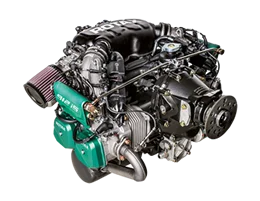
Rotax 912 iS
Perfected 4-stroke engine with full take-off power and engine management system
| Specifications (Dimensions) | |
|---|---|
| Wingspan | 30 ft/9.165 m |
| Length | 21.9 ft/6.675 m |
| Height | 8 ft/2.45 m |
| Cabin Width | 46.5 in/1.18 m |
| Specifications (Weights) | |
|---|---|
| Standard Empty Weight | 420 kg |
| Useful Load | 180 kg |
| Maximum Weight | 600 kg |
Running Costs
This is an estimated running cost per hour for a each of our Sling models based on maintenance and fuel burn costs.
$56
Sling LSA
Costs/Hour
$56
Sling 2
Costs/Hour
$65
Sling TSi
Costs/Hour
$66
Sling HW
Costs/Hour
